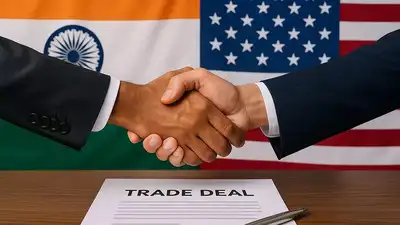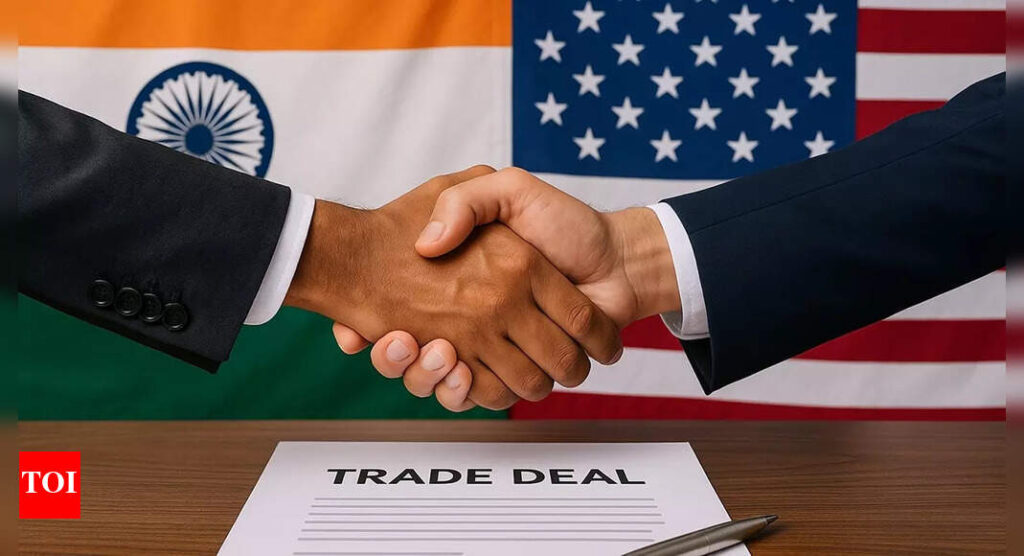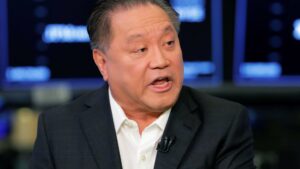
India, US close in on trade deal? In trade discussions with the US, India has put forward a proposal for zero-for-zero tariff arrangements on specific items including steel, auto parts and pharmaceuticals, based on reciprocity and limited to certain import volumes, according to sources with knowledge of the matter.
The discussions come at a time when US President Donald Trump has hit a 90-day pause button on proposed reciprocal tariffs. Many Asian countries, including South Korea, Japan and India, are at the forefront of securing interim agreements with the Trump administration.
According to a Bloomberg report, during their visit to Washington in the previous month, Indian trade representatives presented this proposal to accelerate discussions for a bilateral trade agreement anticipated by autumn this year.
The standard duty rates would apply once imports exceed the specified threshold, according to the sources.
Also Read | China’s pain to India’s gain? Jefferies says India, Japan may strike better deal with Trump amid US-China trade war
Both countries are focusing on select industries to achieve a swift trade agreement before the conclusion of the 90-day suspension of President Donald Trump’s reciprocal tariffs, the sources indicated.
Trump indicated on Sunday that several trade agreements could be finalised this week, potentially easing concerns of trading partners seeking to avoid elevated US import tariffs. This comes amidst a contraction in the US economy.
The United States has expressed concerns to India regarding Quality Control Orders, viewing them as obstacles to trade that impede US exports, according to informed sources quoted in the Bloomberg report.
Also Read | ’Seismic shift in US trade policy…’: S&P cuts India’s GDP growth forecast for the second time in two months on Trump tariff uncertainty
These mandatory quality requirements, which establish standards for both domestic and international manufacturers selling products in India, have faced criticism for lacking transparency and fairness.
Indian authorities have shown willingness to review current QCOs, particularly in the medical devices and chemical sectors. They have proposed establishing a mutual recognition agreement with the United States, whereby both countries would acknowledge and accept each other’s regulatory frameworks and procedures.
The inclusion of these suggestions in the eventual agreement remains uncertain.
Statistics indicate a significant increase in QCOs, rising from 14 before 2014 to exceeding 140 since 2017.














